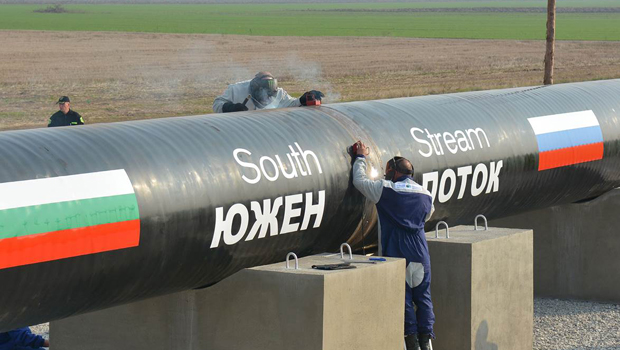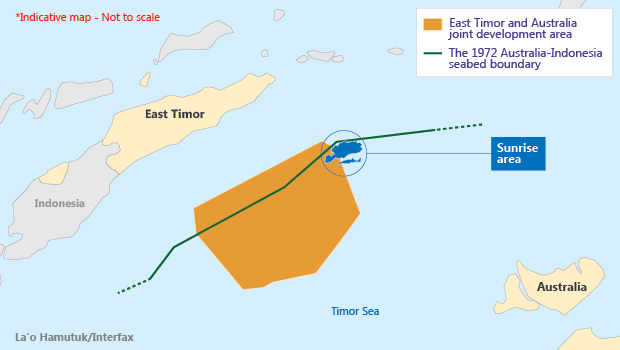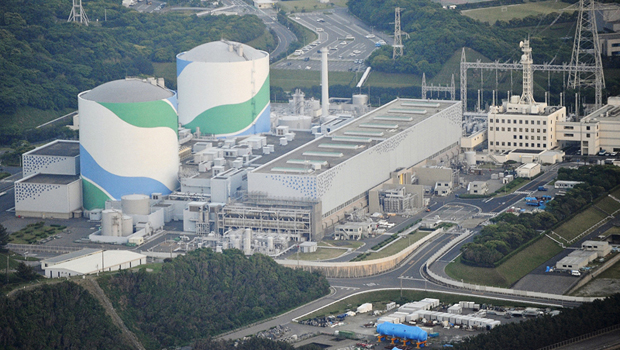The EU’s long road to transparent IGAs
 Bulgaria stopped building South Stream after the EU said the country’s IGA with Russia contravened EU law. (Gazprom)
Bulgaria stopped building South Stream after the EU said the country’s IGA with Russia contravened EU law. (Gazprom)
The European Commission listed enhanced transparency in intergovernmental agreements (IGAs) as one of its top priorities in the energy union paper released on 25 February. The current rules on transparency in IGAs, adopted three years ago, will be revised next year with the aim of strengthening the commission’s role in negotiating and designing energy supply contracts, it said.
“The commission will propose a revision of the Decision on Intergovernmental Agreements in 2016 to ensure compatibility with EU legislation before agreements are negotiated; involve the commission in such negotiations; develop standard contract clauses covering EU rules; and make commercial gas supply contracts more transparent,” the commission said in the energy union paper.
The current framework – Decision 994/2012/EU, which was adopted in 2012 – only allows the commission to see IGAs after they have been signed, while the commission’s original proposal from 2011 would have enabled it to see contracts before they were signed.
However, this was rejected by member states in the Council of the European Union and the original proposal was eventually watered down during negotiations between the commission, the council and the European Parliament.
The issue of enhanced transparency in IGAs was due to be discussed at a council meeting between energy ministers from the 28 EU nations in Brussels on Thursday, according to EU officials. However, some member states – including Hungary and Bulgaria – are expected to fiercely oppose a new framework.
“The commission wants to have more control before supply contracts are signed,” Constantine Levoyannis, a senior consultant with FTI Consulting in Brussels, told Interfax. “It has been proved that after a contract has been signed it is pretty hard to make amendments. I expect negotiations between the commission, council and parliament to be fierce,” he added.
Supply and transit agreements
According to the commission, an IGA refers to any legally binding agreement between two or more member states – and/or third countries such as Russia – which has “an impact on the operation or the functioning of the internal energy market or on the security of energy supply in the union”. Two obvious examples are long-term gas supply contracts and transit arrangements.
It is hard to overstate the importance of IGAs, especially with the cancellation of the South Stream pipeline fresh in mind. Brussels and Moscow disagreed about the validity of IGAs between Russia and the pipeline’s transit states, which included Austria, Bulgaria, Croatia, Greece, Hungary and Slovenia, as well as FYR Macedonia and Serbia, which are part of the Energy Community.
The commission publicly stated in December 2013 that all the IGAs concerned were not compatible with EU law – including the right to third-party access, transport tariffs set by an independent regulator, and unbundling rules.
The commission called on Bulgaria to stop the construction of the pipeline last June, and the project was later cancelled.
“More transparency of IGAs is absolutely vital,” Arno Behrens, head of energy and a research fellow at the Centre for European Policy Studies, told Interfax. “The South Stream project – where member states negotiated supply and transit agreements bilaterally with Gazprom – illustrated this. In the end, these agreements were not compatible with EU law.”
Another recent example is the ongoing investigation into Gazprom, where the commission is looking into whether the Russian monopoly has hindered competition by imposing destination clauses – which ban contracted gas from being resold – and using unfair pricing.
However, stakeholders in the energy industry have voiced concern that a new transparency regime for IGAs must not jeopardise confidentiality in commercial contracts. On the other hand, removing anticompetitive clauses – such as a ban on on-selling or destination clauses – seems to have broad support.
“There are certainly some clauses in some contracts that prevent liquidity and competition,” François-Régis Mouton, chairman of industry association GasNaturally, told a conference in Brussels this week.
Sebastian Barkowski from the representation of Poland to the EU told the conference the commission would be “a good facilitator” when new gas contracts are being negotiated. He also welcomed the idea that certain contract clauses should be standardised across the EU.
“We see this as a positive move… Transparency needs to be enhanced,” Barkowski said.









